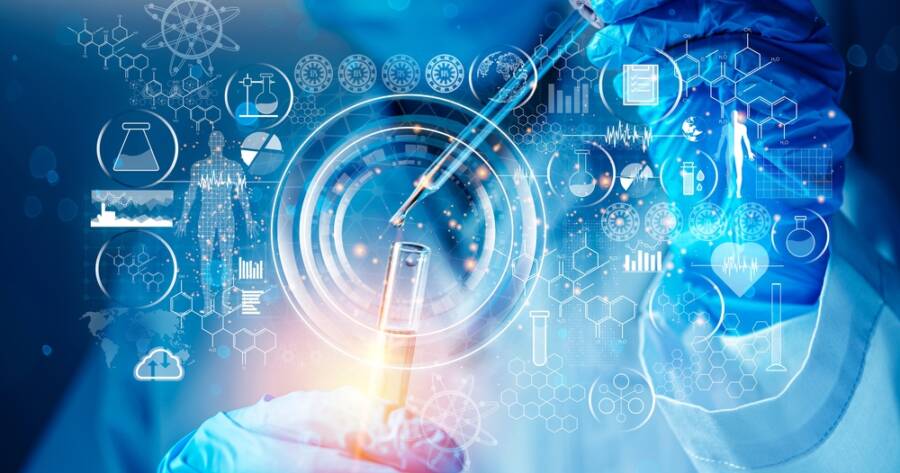The quest for longer, healthier lives has captivated scientists, medical researchers, and even tech entrepreneurs. With advancements in artificial intelligence (AI) and biotechnology, we are now closer than ever to unlocking the secrets of longevity. From AI-driven health monitoring to cutting-edge anti-aging research, the future of human lifespan extension looks promising. This article explores the latest breakthroughs in longevity science and how these innovations can help us live longer, healthier lives.
AI-Powered Health Monitoring: Personalized Insights for Longevity
Artificial intelligence is revolutionizing the way we monitor and manage our health. AI-driven platforms, powered by vast datasets and machine learning algorithms, can detect early signs of diseases, predict potential health risks, and offer personalized recommendations to improve longevity. Wearable technology, such as smartwatches and health-tracking apps, continuously collect data on vital signs like heart rate, oxygen levels, and sleep patterns. These devices provide real-time insights, helping individuals make proactive lifestyle changes.
In addition, AI is playing a crucial role in preventive healthcare. Companies like Google DeepMind and IBM Watson are developing AI systems that can analyze genetic markers and detect diseases like cancer at their earliest stages. With early detection and timely intervention, AI is set to become a game-changer in increasing human lifespan.
The Role of Biotechnology in Anti-Aging Research
Biotechnology is at the forefront of longevity science, with researchers making significant strides in reversing the aging process. One of the most promising areas of research is senolytics, a field focused on eliminating senescent cells—damaged cells that accumulate with age and contribute to chronic diseases. Scientists have discovered that certain compounds, such as fisetin and quercetin, can selectively clear these cells, potentially extending lifespan and reducing age-related ailments.
Another breakthrough in biotechnology is gene editing. CRISPR, a powerful gene-editing tool, is being explored as a method to repair DNA damage, correct genetic mutations, and enhance cellular regeneration. By addressing the root causes of aging at a genetic level, biotech innovations are paving the way for a future where age-related decline can be slowed or even reversed.
Longevity Diets: Eating for a Longer Life
What we eat plays a crucial role in how long and how well we live. Scientists studying the diets of the world’s longest-living populations have identified key nutritional habits that contribute to longevity. Some of the most effective longevity diets include:
- The Mediterranean Diet: Rich in healthy fats, lean proteins, and antioxidants, this diet has been linked to reduced risks of heart disease and cognitive decline.
- Intermittent Fasting: Studies suggest that time-restricted eating can improve metabolism, enhance cellular repair, and reduce inflammation.
- The Blue Zones Diet: Inspired by regions where people live the longest, this diet emphasizes whole, plant-based foods, minimal processed sugars, and moderate consumption of lean proteins.
- Caloric Restriction: Research indicates that reducing calorie intake without malnutrition can extend lifespan and slow down aging markers in the body.
With AI-driven nutrition tracking, individuals can receive customized diet plans based on their genetic predispositions and health goals. This level of personalization ensures that people can optimize their nutrition for longevity.
AI-Driven Drug Discovery and Regenerative Medicine
AI is accelerating drug discovery by identifying compounds that can slow aging and enhance cellular health. Traditionally, drug development is a time-consuming and costly process, but AI models can rapidly analyze millions of molecular structures and predict their potential effectiveness against age-related diseases.
One promising area of research is metformin, a diabetes drug that has shown potential anti-aging benefits. AI-powered analysis has helped scientists identify its ability to improve cellular function and increase lifespan in animal studies. Additionally, AI is being used to develop peptide-based therapies that target aging at a cellular level, improving tissue regeneration and immune function.
Another groundbreaking field is regenerative medicine, where AI is helping to advance stem cell research and tissue engineering. Scientists are exploring ways to grow new organs, repair damaged tissues, and even regenerate neurons to combat neurodegenerative diseases like Alzheimer’s. These innovations could significantly extend not just lifespan but also healthspan—the number of years we live in good health.
A Future Where Aging Is Optional?
The convergence of AI and biotechnology is creating a future where aging may become a manageable condition rather than an inevitable decline. With AI-powered health tracking, personalized longevity diets, and biotech advancements in cellular repair, we are on the verge of an era where people can live well beyond 100 in optimal health. While there is still much research to be done, the rapid progress in longevity science is reshaping our understanding of aging and the possibilities for human life expectancy. As technology continues to evolve, the dream of living longer and healthier may soon become a reality for future generations.

